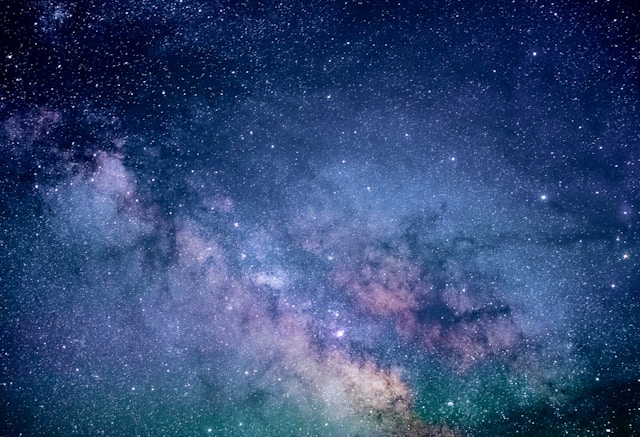"When it is dark enough, you can see the stars."
Ralph Waldo Emerson:

Image kindly provided by Jeremy Thomas (@jeremythomasphoto) | Unsplash Photo Community
Breisleach: Gazing into the Universe's Edge
I have always been a stargazer since I spent the lonely nights as a child in our cabin on the Island of Bute on Scotland’s west coast. Whether under the sprawling, dark skies of the countryside or amidst the faint glimmer seen from the city, the stars have been my constant companions. Yet, it was only yesterday, during a visit to the Glasgow Science Centre at the culmination of National Astronomy Week, that I experienced a moment of profound awe that left me searching for words to encapsulate the depth of my emotion.
The Gaelic word, breisleach, refers to a moment of deep, awe-filled reflection. This was the sensation that overcame me as my wife and I sat under the Planetarium's dome, prepared for a journey across the cosmos. The universe, I've always known, is incomprehensibly vast. Words like "big" or "vast" fall short of capturing its boundless expanse. Yet, nothing could have prepared me for the moment the lights dimmed, the ceiling opened, and we were drawn into the celestial dance of the solar system.
As Martin, the lecturer, guided our gaze to the image of Earth—a tiny speck suspended in the shimmering ribbon of the Milky Way—I felt an overwhelming rush of breisleach. Tears welled up in my eyes as I pondered our planet's fragile beauty, poised on the edge of eternity. In that moment, I felt a connection to something greater, a tapestry of creation so intricate and vast that it stirred something transcendent within me.
This sensation isn't new to humanity. David, the shepherd who became king, must have felt a similar sense of breisleach as he watched over his flock under the ancient skies, free from the light pollution, the incessant buzzing of mobile phones, and the myriad distractions of modern life. It was under such a sky that he penned the words of Psalm 8, a humbling meditation on our place within the universe:
When I behold Your heavens, the work of Your fingers, the moon and the stars, which You have set in place—what is man that You are mindful of him, or the son of man that You care for him?
These words resonate with me more deeply now than ever before. They remind us that despite our advanced technologies and the hustle and bustle of contemporary life, we remain deeply connected to the cosmos, just a small part of a grand, divine canvas.
This experience has led me to reflect on the concept of infinity—not just in terms of space, but as a measure of life, time, and the hope that springs eternal in the human spirit. In the vastness of the universe, our lives are mere instants, yet each moment holds the potential for profound joy, deep reflection, and a connection to a future beyond our understanding.
As we walked out of the Planetarium, the world felt both immeasurably vast and comfortingly small. I am grateful for moments of breisleach, for they remind us of our place in this universe—not as masters, but as humble witnesses to its majesty and mystery.
In these reflections, we find a bridge between the celestial and the spiritual, a reminder that our existence, while seemingly minuscule, is deeply intertwined with the cosmos itself. In every starlit night, there is a call to remember our origins and to look forward with hope to the destiny that awaits us among the stars.
“And this is the promise that He Himself made to us: eternal life.” I John 2:25 (BSB).